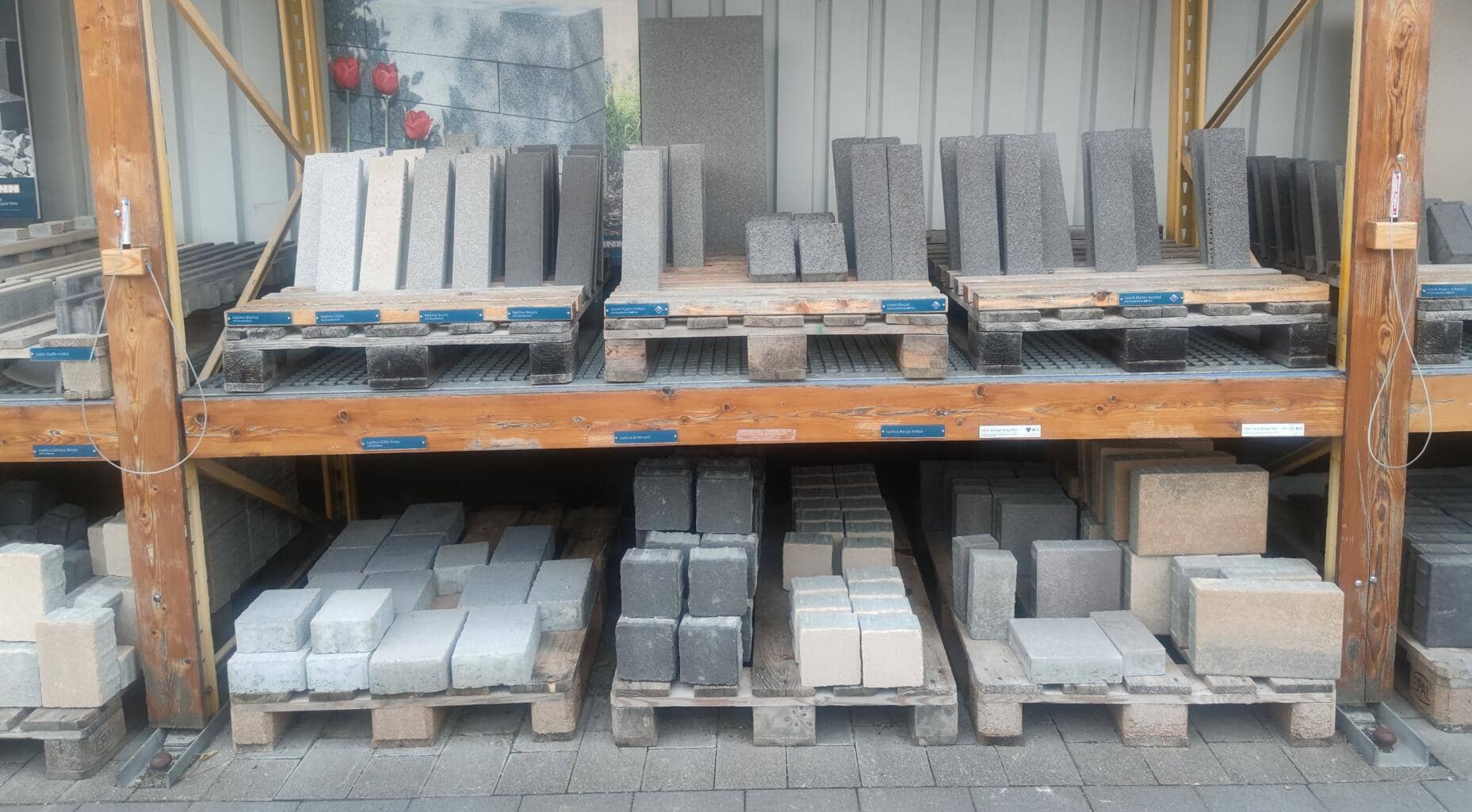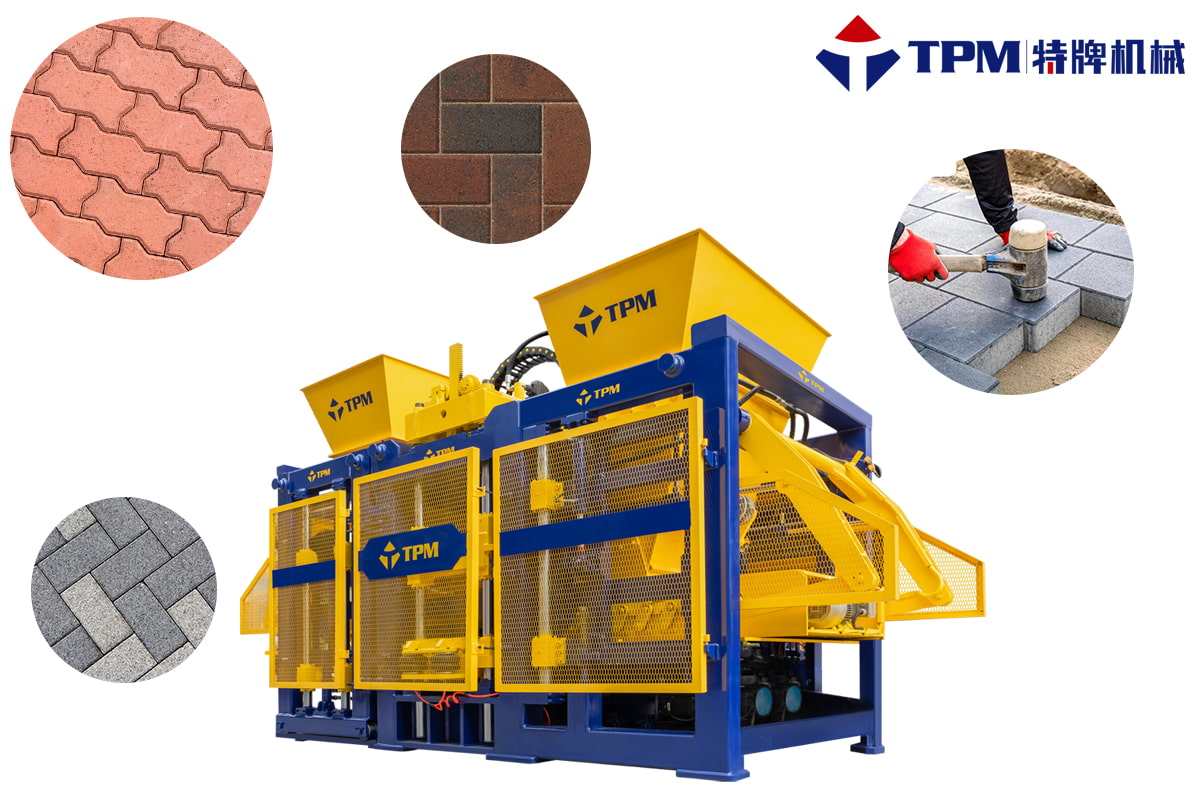Paver block
Paver blocks, also known as paving stones, concrete pavers or paving blocks are a type of construction material used for road paving, walking path, petrol stations, sea port, airport and other outdoor surfaces. These pavers are produced from a mixture of cement, sand, crushed stones, and color pigment, which are compacted under high pressure and then cured to become high density and high compactness paving blocks.
Paver blocks come in various shapes, sizes, colors, textures, allowing for versatile design options. Common shapes include rectangular, square, and interlocking patterns. The blocks are typically laid on a compacted bed of sand or gravel, with or without the use of mortar, depending on the specific application.

The interlocking design of paver blocks allows them to fit tightly together, creating a stable surface that can withstand heavy loads and resist shifting or settling. This makes paver blocks a popular choice for areas that experience frequent freeze-thaw cycles, as they can flex and expand without cracking.
In order to manufacture high performance paving blocks, it's worthy to get one paver block machine, which is of heavy duty structure and high pressure.

Concrete products made by automatic paver block machine
Paver block machines are specifically designed to produce various types of concrete products for paving applications. Here are some common concrete products that can be produced using a block making machine:
When purchasing a paver block machine, it's crucial to consider the specific types of concrete products you intend to produce and ensure that the machine is capable of meeting those requirements.
What distinguishes paver blocks from concrete blocks?
Paver blocks and concrete blocks are both building materials made from concrete, but they have distinct differences in their size, shape, and use:
Paver Blocks: Paver blocks are available in various shapes (square, rectangular, interlocking) and sizes, allowing flexible design options. They are commonly used for creating walkways, driveways, patios, and other outdoor surfaces. Paver blocks often feature patterned or textured surfaces for aesthetic appeal.
Concrete Blocks: Concrete blocks have a standardized rectangular shape and are typically plain without decorative elements. They are widely used in construction for building walls, foundations, and structural components, providing strength and stability.
Paver Blocks: Paver blocks are specifically designed for paved surfaces. They are suitable for withstanding traffic loads and adverse weather conditions, making them ideal for roads, walkways, driveways, and landscaping projects.
Concrete Blocks: Concrete blocks serve as essential building elements. They are commonly used in the construction industry for creating walls, buildings, and various architectural structures. Concrete blocks provide structural integrity and support for load-bearing purposes.
Paver Blocks: Paver blocks are typically thicker than standard concrete blocks since they need to withstand the weight of vehicles and foot traffic. Their robust construction ensures durability and longevity in surface applications.
Concrete Blocks: Concrete blocks come in various thicknesses, depending on the specific requirements of the construction project. They are designed to provide strength and stability for building walls and structural components.
What's the manufacturing process of paving blocks by paver block machine
1. Batching of Aggregates:
This involves measuring and combining different materials in the desired proportions. The aggregates typically include crushed stone, sand, and gravel. Batching done using a batching machine or by manual measurement(For small block machine);
2. Mixing of Concrete:
After batching, aggregates are transferred to mixer where cement and water are added. The mixing process ensures that all the ingredients are uniformly distributed, resulting in a consistent concrete mixture. The mixing can be performed in a twin-shaft mixer, planetary mixer or a pan mixer depending on the scale of production;
3. Hydraulic Press and Vibration:
After the concrete mixture is ready, the hopper will discharge concrete into feeding car, then feed into block machine mold cavities evenly. The hydraulic press applies pressure to compact the concrete mixture and shape it into the desired paving block form. At the same time, vibrations are applied to remove any air voids, ensuring a dense and strong block;
4. Stacking:
Once the blocks are formed by concrete block machine, the tamper head will raise up and demold, so wet blocks can be conveyed out. The freshly manufactured paving blocks are carefully stacked in a controlled manner. This stacking is typically done on pallets or racks, with spacers between layers to allow proper air circulation and facilitate the curing process
5. Curing:
Curing process for paving block machine refers to the process of providing sufficient moisture and maintaining appropriate temperature conditions to allow the freshly manufactured paving blocks to gain strength and durability. Curing is crucial for the proper hydration and hardening of the concrete mixture, ensuring the blocks achieve their desired strength and durability.
Reference video for better understanding about the production processing of paver blocks made by an automatic block making machine.
Links: TPM Bangladesh
Copyright 2025 @ Fujian Tepai Machinery Co., ltd. .All Rights Reserved.  Network Supported
Network Supported
Sitemap | Blog | XML | Privacy Policy